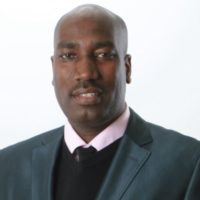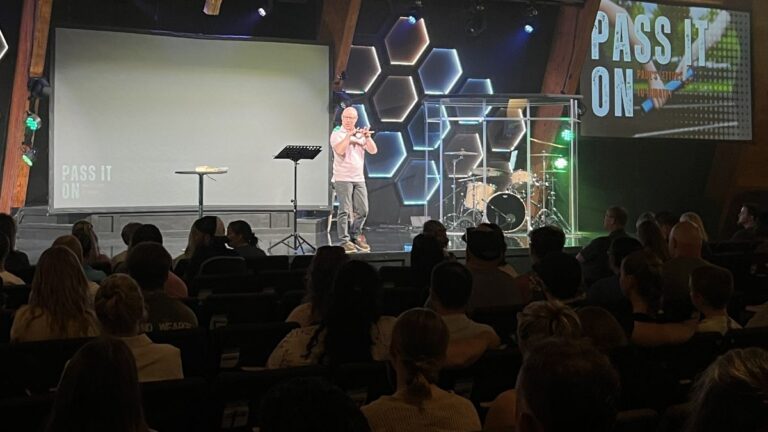“It is a blessing that immigrants are coming to these shores and seeking liberty and opportunity, but collectively we have to do a better job with seeking unity.”
— Reverend Kenneth I. Lewis, Jr., Senior Pastor at Green Memorial African Methodist Episcopal Zion Church, Portland
Here in the U.S., you don’t have to look far to see that we have a long way to go to eliminate divisions between groups of people and reach social, economic, and political equity.
For instance, according to the NAACP, a Black person is five times more likely than a white person to be stopped without just cause by the police. And according to the Vera Institute for Justice, Black men comprise approximately 13% of the total U.S. population, but 35% of the incarcerated. As an African immigrant, when I first came across these statistics, I was shocked. I did not know much about racism in the U.S. before coming here.
This month I reached out to Rev. Kenneth Lewis to ask him to comment on how far we have come since the passage of the Civil Rights Act in 1964, a landmark year in the struggle for racial equality. He responded by saying that we still have a very long way to go. He noted that Martin Luther King, Jr., aspired to create a “beloved community.” That search is still ongoing, he said, and we must continue to work toward bringing it about.
According to The Martin Luther King, Jr. Center for Nonviolent Social Change, founded by Coretta Scott King, “Dr. King’s Beloved Community is a global vision, in which all people can share in the wealth of the earth.
In the Beloved Community, poverty, hunger and homelessness will not be tolerated because international standards of human decency will not allow it. Racism and all forms of discrimination, bigotry and prejudice will be replaced by an all-inclusive spirit of sisterhood and brotherhood.
In the Beloved Community, international disputes will be resolved by peaceful conflict-resolution and reconciliation of adversaries, instead of military power. Love and trust will triumph over fear and hatred. Peace with justice will prevail over war and military conflict.”
Rev. Lewis observed that African immigrants are often not aware of how it feels to be an African American in the United States because in Africa, the oppressor and the oppressed have the same skin color and look the same. But this is different here in America, and the history of African American people is very different from the history of people living in Africa. Rev. Lewis offered that he is always available to help African immigrants understand more about what it is like to be an African American.
When I spoke to Portland City Councilor Pious Ali, he said he finds it very sad that as a nation we seem to take one step forward, followed by two steps backward. The “beloved community” that Martin Luther King spoke and preached about is yet to come, he said.
There are still separate pockets of “us” and “them” in our community, and we must work hard not to return to the place we started. Some of the problems faced in Martin Luther King, Jr.’s time seem only to have gotten worse, Councilor Ali said.
These include access to equitable housing and education, great disparity in rates of incarceration, and wars that have caused millions of refugees to flee their homelands — and some of them to flee to the U.S., and even settle in Maine.
As we observe Black History Month this year, my hope is that we will pay attention to the violence and wars currently destroying the lives of so many people in different countries in Africa. And we should also look at Africa’s pre- and post-colonial history that promoted the divisions and corruption and violence we see today. As a society we must aim to leave the world a place of peace and justice for future generations to enjoy.
Division and conflict and violence serve the interests of very few people — although the most powerful often benefit economically and socially. The rest of us would be better off in a world where justice and equity prevail.
I am reminded of the Kinyamulenge saying: “Where there is no hatred and division, the skin of a flea can be slept on by two people.”
This column first appeared in Amjambo Africa, a print and digital publication that serves new immigrants to Maine. It is republished with permission.







